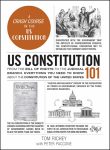Book Review :: Ordinary Entanglement by Melissa Dickey

Review by Jami Macarty
In Ordinary Entanglement, Melissa Dickey speaks of the “harnessed unharnessed bound unbound” particular to a woman’s private life as mother, daughter, and lover and her reckoning with “power / and deception” in political society, “where marks are made.” But she “must be careful not to see everything / through a wound.”
This is a challenging endeavor for a mother when she realizes she has “brought / [her] children to [her] childhood”; when “betting on climate change [is a] good bet”; when the destruction of “historic Black neighborhoods” makes way for an interstate highway.
Dickey’s attention to what is unfolding internally — the thought of buying a “four-dollar coffee”— in response to what the poet encounters on the street — “people living / in tents”— is the entanglement of life. In other words, the phenomenon of “getting used to getting used to / a feeling [she doesn’t] want to get used to.”
The poet comes to recognize the plain fact that “everything we do we do at some cost.” It may be true that “people / have reasons for doing bad things / / but a reason doesn’t make the thing good.” And this is only one side of the reckoning, “Another knock / at the same door.” Dickey also aims to reckon with “goodness,” to “try to say ‘blessed’ and mean it.”
As she learns “how to live threaded / how to live tethered,” Melissa Dickey “disperse[s] what nags / let[s] a prayer unravel.”
Ordinary Entanglement by Melissa Dickey. CSU Poetry Center, October 2023.
Reviewer bio: Jami Macarty is the author of The Long Now Conditions Permit, winner of the 2023 Test Site Poetry Series Prize (forthcoming University of Nevada Press), and The Minuses (Center for Literary Publishing, 2020), winner of the 2020 New Mexico/Arizona Book Award – Poetry Arizona. Jami’s four chapbooks include The Whole Catastrophe (Vallum Chapbook Series, 2024) and Mind of Spring (Vallum Chapbook Series, 2017), winner of the 2017 Vallum Chapbook Award. To learn more about Jami’s writing, editing, and teaching practices, visit her author website.


















































